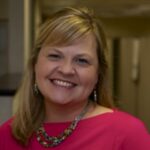Finding the Qualified Biocompatibility Unicorn

In this episode, our hosts are joined by Nicole Soucy, PhD, DABT from Boston Scientific to discuss qualifications of expert assessors and other personnel qualified to make biological evaluation decisions for medical devices.
Documents including ISO 10993-1, Medical Device Regulation (MDR) documentation submissions and BSI best practice guidelines recommend having a qualified individual make decisions for the biocompatibility of medical devices. While many testing organizations claim to perform this work, what does “qualified” really mean and how do companies determine this qualification? In this episode, our experts discuss hiring and training processes utilized to identify and grow qualified individuals within their organizations.
“What are the qualifications that a person needs to have to evaluate the biocompatibility of a device? We get questioned about it all the time.” – Don Pohl
“Anytime you have a position open…you’re looking for that needle in a haystack to find someone who is appropriately qualified and has a good, strong background.” – Nicole Soucy
“You are not going to go out and find someone who has a Bachelor’s or Master’s degree—or even a PhD—in medical device biocompatibility; those people don’t exist. There is definitely an on-the-job training component to growing and developing this skill set.” – Nicole Soucy
“A really critical partner in all of this is your analytical chemist. They need to be integrated into you team. You need to have strong chemistry support all the way through your project.” – Nicole Soucy
Discussion points include:
- How this role is the “famed unicorn” of medical device development
- How on-the-job training is a critical component to successful assessors
- How long until an assessor is able to work independently on a plan and assessment
- Challenges with regulators utilizing an assessment properly
- What someone looks for when choosing a qualified individual to perform this work
*Please note that the opinions discussed throughout the podcast are their own and do not reflect that of their current or former employers.
Also be sure to check out our Biocompatibility Strategy Navigator.



